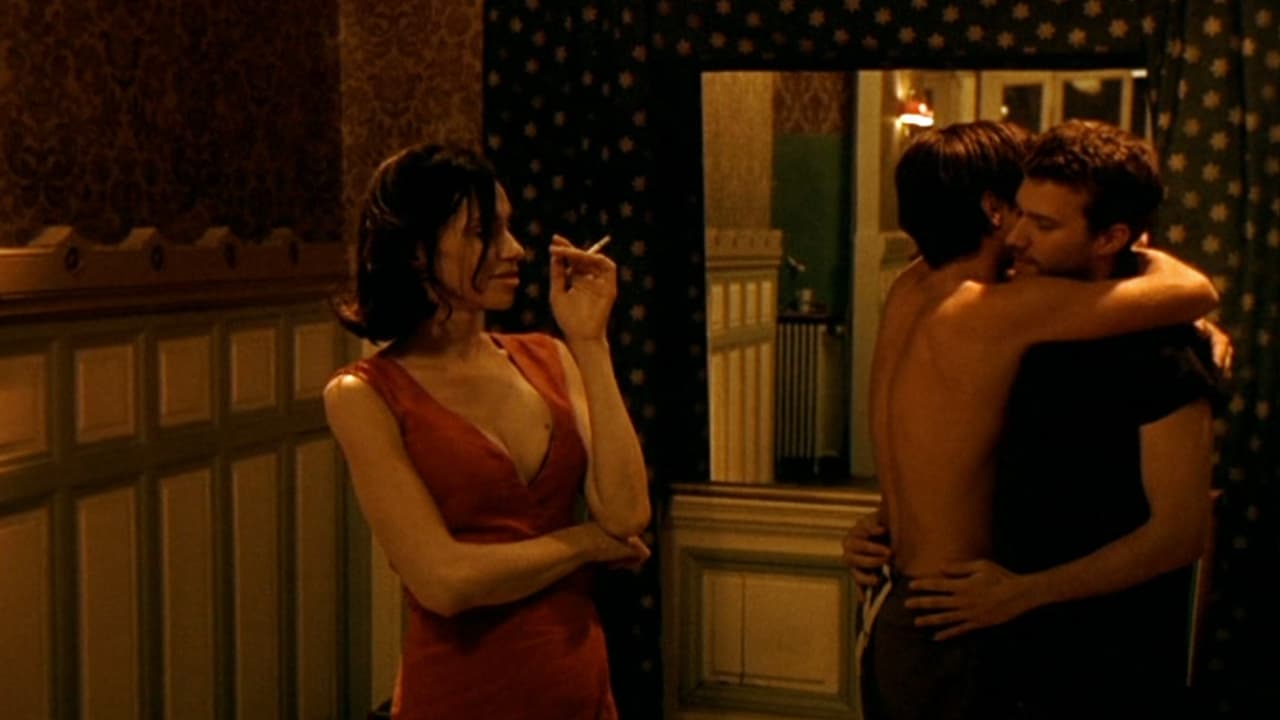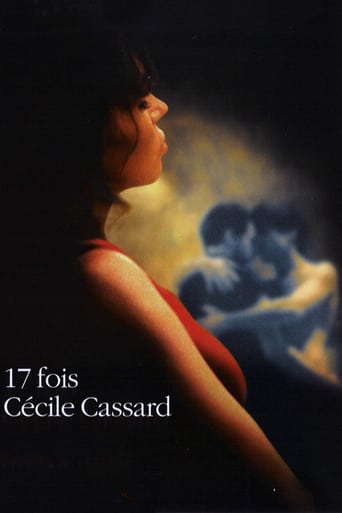

I write this review so other will not do the same mistake that I did.I have seen the film when it was in theater because of some good reviews in the press... But I must admit that it is the worst experience I have ever had. Though I tried, I still do not understand what lead some user to do a good comment of this film.I do not like to do bad reviews, but this film has been such a bad experience that I cannot help to say what I think of it, even ten years after seeing it.This film represent for me what goes wrong in the French cinema industry and authors: - films that are boring; - scenarios which makes little to no sense at all; - worst, a lack of connection to the way real people behaves (for instance, apparently the abandon of a child is not so hard), thus preventing spectators to project themselves in the movie; - ... And for those who will watch it in French... Always the same problem of actors always mumbling... French is my native language, but still I have sometimes troubles to understand!As another review states it, the film is pretentious and indulgent... Pretentious because the film is not enjoyable, the acting is poor... And still it is released as if it was a new milestone of the Cinema. The film also includes scenes of homosexual men making out - for those interested! I didn't understood the point of the scenes, apart perhaps to lure homosexual into seeing it (as many other movies do with nudity, which isn't an excuse to a scenario poorly written, I'm afraid) or pretend to be "à la mode"... (I'd go for the second explanation).In the end, I said that I had to resist to leaving the theater. This is not only because the film is so boring: it is because I felt obfuscated that I paid to see such a poorly made film with a boring scenario which make so little sense, with characters I cannot feel related to because they all seems to be in the deepest depression... And finally because I feel ashame that this is the typical French cinema drama's worst: a genre where it seems to be OK to do a bad film as long as you say it's art!
... View MoreIf there is one film I could call pretentious and indulgent it is "Dix-Sept Fois Cecile Cassard." The whole 1:45 running time of this film is one long, slow and episodic telling of the depression suffered by a woman after her husband dies presumably for her. There are scenes which very long-winded and even tense, but several lead to absolutely nowhere, like Cecile walking along then into the river, or her son fixing the toys in the play room. You absolutely do not understand what this woman Cecile is thinking of or why she is behaving so bizarrely. The music used is very good and some camera angles are quite imaginative, however the rest of the movie is just one pointless waste of time.
... View MoreEuropean cinema is often characterised by craftsmanship, care for detail, whether in the acting or the composition of each shot. This film is no exception - in fact is is exceptional in its portrait of grief, its communication with the more desperate and isolated feelings within each of us - something that is achieved with the dexterity of Dalle's performance and the care with which the film is put together. (Minor spoilers follow) Dix-sept fois Cécile Cassard draws us in from the very beginning. Dalle is in bed. In the doorway we see the dim figure of a male, pale, naked and full frontal. Gradually we become aware that his image is rather less than substantial - he is a ghost perceived by Cécile Cassard (Dalle) who is recently bereaved. Her husband has committed suicide so that there will be money from the insurance to look after her and their young child. She descends into a spiral of despair - reminding us of her character in Betty Blue. But this is no crazy woman. She is aware of her own loss and how deeply it is affecting her - even to the point where she knows she has become a liability to her son. After flirting with death herself, she slowly awakens to everyday life, to the beauty of spontaneous human warmth. The same music repeated in different stages of her emotional journey is at first jarring, then painfully harsh, then uplifting and resilient. Although it does not have the commercial appeal of Betty Blue, Dix-sept fois Cécile Cassard has an integrity that is at once more meaningful and poignant.
... View Morea portrait of a woman in 17 fragments, a woman who has just lost her husband, a woman who leaves behind her a life in the provincial city of Tours where every person, every object and every gesture holds memory of a love she cannot bear to have lost, a woman who proceeds forward, a bit blindly, as she essays to remove a great distance that has between her and her heart, which has become, in her mind, an unsafe place. beatrice dalle incarnates this woman, cecile cassard, giving a beautiful performance worthy of recompensation. perhaps even the cesar for best performance for this year. she doesn't merely act well, she inhabits this woman: dalle doesn't lie when she tells us, as she often does, that she lives a character while she is making a film.the director, christophe honore, not forgetting that it is he who illicits dalle's wonderful performance, demonstrates a masterful command of visual storytelling in remembering that, in film, pictures have a more important weight than words in advancing a narrative story-line. much is heard in the french press and on television that this is an experimental film, a film without a linear narrative. no, in fact, the film is a conventional narrative at heart for it follows a linear journey of a woman as she strives to refind herself. and it is a beautiful story, mixing pain and loss with laughter and love. i look forward to more films by him in the future. also of note is a good soundtrack by alex beaupain and les lily-margot and the beautiful cinematography by remy chevrin: they achieve a perfect symbiosis, such as in the opening sequence, the scenes at the abatoir-factory in Toulouse, and the dancing scene between dalle & romain duris, who plays the director's alter-ego of sorts, in the hotel where cecile first stays in Toulouse.
... View More